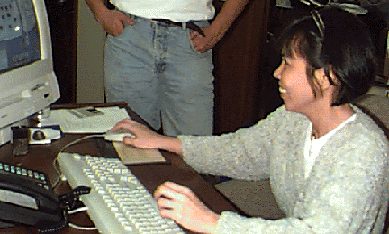Marissa

Marissa
In my mind, and I shared this with the Saskatchewan group, the noble objective of the conference is to hear and listen to the views of Asian and Canadian youth on how to (at least ) help address the issue of multi-culturalism and other issues affecting them, and have these views taken into consideration for decision making.
I am Marissa from the Philippines. I came here as chaperone for the two Filipino delegates invited to the conference. I worked for the Filipino children by being part of the work force of the Council for the Welfare of Children (CWC) which is the Philippine Government's apex agency on child welfare and development. CWC was legalized (Child and Youth Welfare Code of the Philippines) in 1974 and mandated to coordinate and monitor the implementation of all laws and programs for children as well as international commitments firmed up by the Philippine Government, such as the Convention on the Rights of the Child, the Beijing Conference for Women, the Asian Summit on Child Rights and the Media, the World Congress Against Commercial Sexual Exploitation of Children and many others. The Council also sees to it that these laws and programs for children are implemented within the framework of the Philippine Plan of Action for Children by the year 2000 and beyond. The Council carries out this function through 1) policy formulation, 2) coordination, monitoring and evaluation, 3) network expansion and 4) advocacy.
 I
have learned a lot during the conference (which I did not learn
or hear of during my nearly 14 years of government service). I
came here as a chaperone but I am not coming home to report
that I took good care of our delegates. Instead, I am coming
home with a lot of new ideas and spreading the fruits we gained
from the conference particularly on breaking barriers of
cross-cultural communication/relations.
I
have learned a lot during the conference (which I did not learn
or hear of during my nearly 14 years of government service). I
came here as a chaperone but I am not coming home to report
that I took good care of our delegates. Instead, I am coming
home with a lot of new ideas and spreading the fruits we gained
from the conference particularly on breaking barriers of
cross-cultural communication/relations.
The use of the most modern communication facilities is indeed commendable and we are very fortunate to be among the first to have the experience.
